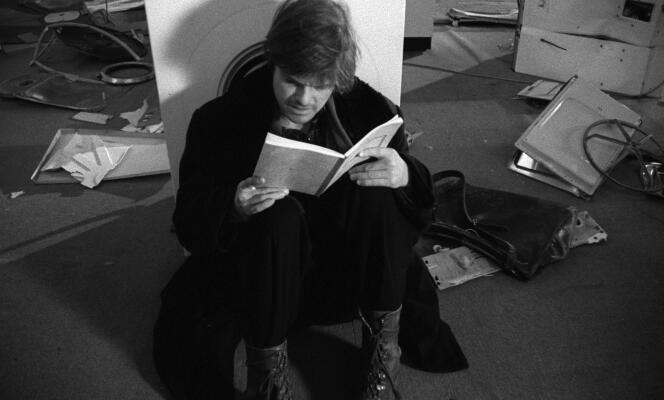It occurs in art, a fortiori in cinema, certain unexpected crossings of stars, as was the case in Hungary, towards the end of the 1980s, between two remarkable creators, the novelist Laszlo Krasznahorkai and the filmmaker Bela Tarr, revealed ‘to each other through the big screen. Their collaboration – five films in twenty-five years, from Damnation (1988) Turin horse (2011) – resulted in the invention of an unprecedented form (including in Tarr’s earlier, very dissimilar works): a shadow theater modeled in the clay of time, a low note maintained in the chaos of the world.
After the monumental fresco of Satantango (1994, arriving in theaters in February 2020), the distributor Carlotta is back with the second pic of this association, The Werckmeister Harmonies (2000), seventh feature film by Bela Tarr, the first to have been released in France (in February 2003), returning with a splendid restored version.
The film is inspired by Krasznahorkai’s second novel, The Melancholy of the Resistance (1989, Gallimard, 2006), written as Satantango on the downward slope of the 1980s, shortly before the collapse of the Soviet bloc, at a time when the horizon of democratic transition was emerging in Hungary. It is therefore a feeling of coming disaster, or of a future weighed down by uncertainty, which then attaches itself to the writer’s pen, lavished on misguided village communities, as well as figures of charlatans and false prophets.
When Satantango (the film), at the height of seven hours, recounted the hangover of disillusioning tomorrows, on the model of the Pied Piper of Hamelin, The Werckmeister Harmonies sense the return of fascism and the hysterization of the crowds – the Hungarian political future will not prove them completely wrong. Bela Tarr finds in the writer’s use of the parable an adequate space to trace his extensive shots and his dizzying tracking shots.
Revolutions and rotations
At the head of a large shed on wheels, a traveling circus arrives in a small town, dragging in its trailer an enormous whale, as well as a mysterious “Prince”, whose speeches provoke crowds and stir up anger. Among individuals and businesses, people are wary of these intruders who are suspected of sowing the seeds of disorder everywhere. Janos (Lars Rudolph), a humble newspaper peddler, witnesses the wind of panic that grips the city, the feeling of imminent catastrophe that hovers. Fascinated by the whale, a biblical monster to which his first name refers (Janos/Jonas), the candid also serves as home help for an old reclusive intellectual, a certain Eszter (Peter Fitz). He is, in fact, absorbed in endless research in musicology concerning Andreas Werckmeister, an 18th century composer who had the misfortune of dividing the octave into twelve equal parts (source of the so-called “well-tempered” keyboard), and thus losing the cosmic resonances of the original music.
You have 40% of this article left to read. The rest is reserved for subscribers.
